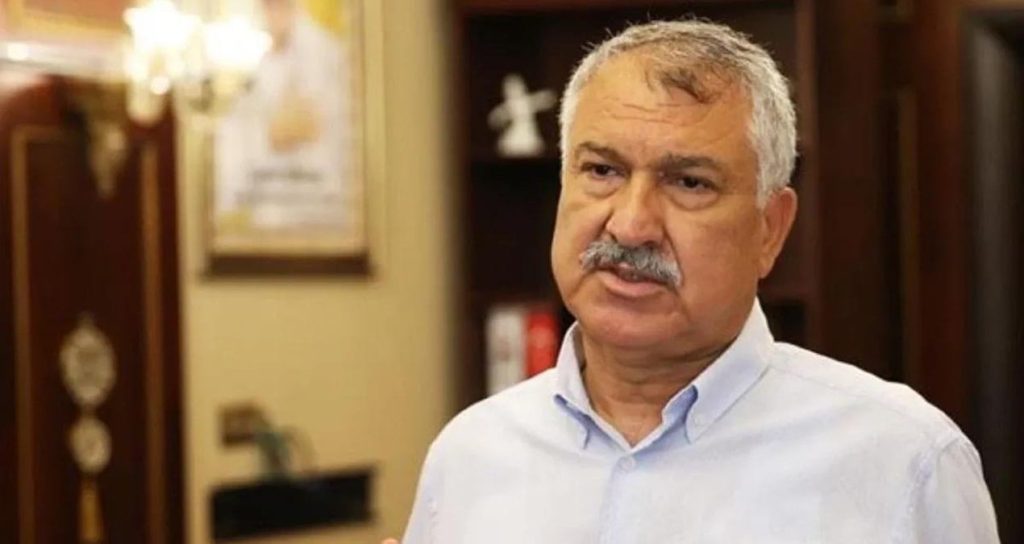In a significant development within Turkish politics, Zeydan Karalar, the Mayor of Adana, was arrested alongside five other individuals, raising concerns about political motivations behind his apprehension. The arrests, which included the detention of other municipal leaders, have drawn widespread backlash from political allies and civil society groups, who claim these actions threaten local governance and democracy. As public figures from various political factions voice their support for Karalar, the issue of judicial independence and the protection of local officials becomes a focal point for discussion.
| Article Subheadings |
|---|
| 1) Arrest of Adana’s Mayor Zeydan Karalar |
| 2) Reactions from Political Leaders |
| 3) Concerns over Democratic Rights |
| 4) Historical Context of Arrests |
| 5) Implications for Local Governance |
Arrest of Adana’s Mayor Zeydan Karalar
On a recent Saturday morning, Turkish authorities carried out a series of arrests that included Zeydan Karalar, the Mayor of Adana, alongside five other individuals. This action took place at the Istanbul Courthouse, where municipal leaders faced various charges — the specifics of which remain unclear. The arrests follow a broader pattern observed in Turkey, where members of the CHP (Republican People’s Party) have been increasingly targeted, raising eyebrows regarding political motives. Karalar’s arrest has been met with broad condemnation, particularly from fellow politicians.
Reactions from Political Leaders
The arrest of Zeydan Karalar did not go unnoticed among his political peers. Mansur Yavaş, the Mayor of Ankara, took to social media to express his outrage. He highlighted the long history of allegations against Karalar, suggesting that such claims should not warrant immediate action. “Zeydan Karalar is Adana, and his will is the people’s will,” he asserted, emphasizing the need for a fair trial devoid of politicization. Similarly, Tülay Hatimoğulları, Co-Chair of the Dem Party, condemned the arrest, equating it with an attack on democracy itself.
Concerns over Democratic Rights
In light of the arrests, the Union of Municipalities of Turkey (TBB) expressed serious concerns regarding these interventions against elected officials. A statement released by the TBB emphasized that such actions threaten the essence of democracy by undermining the will of the people. The TBB articulated that “every step taken without considering the superiority of law, presumption of innocence, and the principle of a fair trial damages democratic legitimacy.” The reiteration of these principles reflects a growing unease among political leaders about how arrests like those of Karalar can erode public trust in governance.
Historical Context of Arrests
The recent arrests of mayors, starting with the high-profile case of Ekrem İmamoğlu, have sparked a series of reactions and analyses regarding political repression in Turkey. Observers note that these actions represent a troubling trend targeting CHP officials, who often challenge the ruling party (AKP) at the ballot box. The backstory of these arrests can be traced back to a long-standing political rivalry. For many, these incidents signal a deeper issue within the Turkish judicial system, questioning the autonomy and integrity of legal processes in politically charged contexts.
Implications for Local Governance
The arrests have significant implications for local governance in Turkey. Local officials play a pivotal role in shaping community policies and ensuring that the voices of citizens are heard. With the rising number of arrests, many observers worry that the government will employ these tactics to intimidate local leaders, suppress dissent, and consolidate power. Political analysts note that a climate of fear can stifle collaboration and diminish the effectiveness of local governments across the country, potentially leading to widespread disillusionment among the electorate.
| No. | Key Points |
|---|---|
| 1 | Zeydan Karalar, Mayor of Adana, arrested along with five others, prompting widespread criticism. |
| 2 | Reactions from political leaders highlight concerns over judicial fairness and democratic values. |
| 3 | TBB expresses deep concerns regarding the threat to local governance and democracy. |
| 4 | Arrests of municipal leaders reflect a growing pattern of political repression in Turkey. |
| 5 | Implications for local governance raise fears of diminishing citizen engagement and representation. |
Summary
The recent arrest of Zeydan Karalar and other municipal leaders underscores a troubling trend in Turkey regarding political repression and the eroding state of democracy. As various political factions voice their support, it is evident that concerns surrounding the independence of the judiciary and the integrity of local governance are at the forefront of public discourse. The implications of these actions reach far beyond individual cases, raising questions about the future of democratic practices in Turkey.
Frequently Asked Questions
Question: What led to the arrest of Zeydan Karalar?
Zeydan Karalar was arrested as part of a broader operation that targeted several CHP (Republican People’s Party) municipal leaders, raising concerns about political motivations behind the actions.
Question: How have political leaders reacted to Karalar’s arrest?
Political leaders from various factions have condemned the arrest, asserting that it threatens democratic values and questioning the integrity of the judicial process involved.
Question: What does the Union of Municipalities of Turkey (TBB) say about these arrests?
The TBB expressed deep concerns, stating that such interventions against elected officials threaten the will of the people and undermine democratic legitimacy.


